calsfoundation@cals.org
Tyson Foods, Inc.
Founded in 1935 in Springdale (Washington and Benton counties), Tyson Foods has emerged as one of Arkansas’s most prominent companies, employing more than 100,000 workers. By the end of the twentieth century, it had become one of the largest meat-processing companies in the world, with millions of customers in the United States and in more than eighty countries worldwide. Forbes magazine currently lists it as one of America’s 100 largest companies, and it continues to play a pivotal role in the state’s economy.
Following the collapse of the fruit industry in northwest Arkansas in the late 1920s, many farmers turned to raising poultry as a source of income. The connection of Highway 71 to Midwest markets such as Kansas City, Missouri, allowed John Tyson, among others, to begin shipping goods northward. Tyson had moved to Springdale in 1931 with his first wife, Mildred Ernst Tyson, and one-year-old son, Don, and earned his living hauling hay, fruit, and chickens for local farmers. In 1935, after borrowing the necessary start-up funds, Tyson made his first long-distance load, hauling chickens to Kansas City and St. Louis, Missouri. The following year, he began hauling birds to the more lucrative Chicago, Illinois, market. On his first journey there, he turned a profit of $235, encouraging him to start shipping poultry to Midwest markets on a full-time basis.
Tyson soon expanded his poultry-shipping business to Cincinnati, Ohio; Detroit, Michigan; Cleveland, Ohio; and beyond, but when a shortage of baby chicks threatened his trucking business, he established his own hatchery and, later, a commercial feed business. World War II proved to be a boon for Tyson, as wartime rationing of beef and government subsidization of poultry made many northwest Arkansas chicken producers—particularly John Tyson—enormous profits. In 1943, he invested in a poultry-growing operation, and accordingly, the process of vertical integration—in which a poultry firm owns virtually every step of the production process from feed to distribution.
The end of the war marked the beginning of a new period for Tyson, as the industry faced increasing uncertainty: diseases ravaged many poultry farms, and the postwar adjustment of the economy caused drastic price fluctuations, which forced many poultry growers into bankruptcy. Fending off potential buyouts from larger firms such as the Swanson Company, Tyson, with his son Don now working for his father, instead began to buy up local competitors. By 1957, the Tyson firm built its first poultry-processing plant on the north side of Springdale. The company had thus developed from a trucking firm into a poultry company that controlled nearly every aspect of production. Most of the actual raising of birds was undertaken by contract growers who were nominally independent contractors. But as a 1967 U.S. Department of Agriculture report noted, such growers were essentially employees of Tyson.
Throughout the 1960s, Tyson continued to expand, buying up competing firms and even dabbling in the retail sale of chickens with its short-lived “Chicken Huts.” In 1967, Don Tyson suddenly took the helm of the company after John Tyson and his wife were killed when their car was struck by a train. Over the next three decades, Don Tyson would oversee the company’s growth into one of the world’s leading food producers.
The 1970s and 1980s saw the company, known as Tyson Foods, Inc., after 1971, continuing its expansion into new markets. In 1977, Tyson purchased major hog-producing facilities in North Carolina. In 1982, the firm made the Fortune 500 list as one of America’s largest companies, and it also secured lucrative contracts to supply chicken nuggets to restaurants such as fast-food giant McDonald’s. Seven years later, the company purchased Holly Farms. This acquisition nearly doubled its market share which, prior to the buyout, had stood at 13.5 percent. The following decade saw even more growth as Tyson bought Hudson Foods and, in 2001, Iowa Beef Producers.
By the early twenty-first century, Tyson Foods stood as the world’s largest processor and marketer of chicken, beef, and pork. Yet along the way, the company has drawn considerable controversy for its business practices. Labor union advocates have charged Tyson with taking a strident anti-union stance, and the company withstood major strikes at processing plants in, for example, Pasco, Washington, and Jefferson, Wisconsin. Environmentalists have charged that the company consistently flouts environmental and safety standards. In 2001, a trial was held in Shelbyville, Tennessee, in which Tyson managers were accused of smuggling illegal aliens into the country to work in poultry-processing plants. The trial ended in acquittal but nevertheless tarnished Tyson’s image as a corporate citizen.
In 2006, the company underwent a major reshuffling of its leadership, as Don Tyson’s son, John, stepped down as CEO (a position he had held since 2000) and was replaced by Richard Bond. This came in the midst of mounting problems: late in 2006, the company reported losses in excess of $196 million for the year. Despite these struggles, the company remains one of the most successful businesses in Arkansas history, rivaling only Walmart Inc. and Stephens Inc. in terms of its size and influence. Tyson has also been diversifying its portfolio in the twenty-first century, acquiring a range of companies, such as Williams Sausage Co. of Union City, Tennessee, the acquisition of which was finalized in May 2023.
During the COVID-19 pandemic, which struck Arkansas in 2020, Tyson plants were notorious for forcing workers to labor even while sick or risk dismissal, which helped the spread of COVID-19 around the country. A lawsuit filed against Tyson in November 2020 alleged that managers at a plant in Illinois had a betting pool about which workers would become sick with COVID-19. At one point, Tyson workers accounted for nearly one-third of all infected workers in the state of Arkansas.
In January 2021, Tyson Foods, Inc., agreed to pay a settlement of $221.5 million in the broiler chicken antitrust civil price fixing litigation brought against the company, as well as many other poultry processors, stemming from claims that as far back as 2008, the processors conspired to coordinate production in order to fix prices. Tyson did not admit liability as part of the settlements. In August 2021, the Union of Concerned Scientists released a report demonstrating the extent to which farmers, laborers, and communities in Arkansas suffered from Tyson’s near-monopoly, leading to a degraded environment, injured workers, depressed wages, and more. Workers at a plant in Van Buren (Crawford County) slated for closure by Tyson went on strike on April 10, 2023, asking for full severance and unused vacation time payouts and better working conditions, including handling of injury claims. The strike ended later that month with verbal agreements on the part of management to address some claims, although severance packages were rejected. The following month, CNN reported that Tyson plants had experienced forty-seven ammonia leaks during a period from 2012 to 2021, resulting in almost 150 worker injuries (and one fatality) and accounting for nearly sixty percent of all ammonia-related injuries at meat plants reported to the Environmental Protection Agency (EPA). Later that year, the U.S. Department of Labor announced that it was investigating allegations of child labor in meatpacking plants operated by Tyson Foods (as well as Arkansas-based Perdue Farms) following a September 18, 2023, New York Times Magazine story about Central American children working, and being grievously injured, at plants in Virginia.
In fall 2023, Tyson invested in Netherlands-based Protix, one of the world’s largest insect ingredient companies, and announced plans to open a U.S. plant to process insect proteins and lipids to use in the pet food, livestock, and aquaculture industries.
In March 2024, it was announced that Tyson, along with processor JBS USA, would pay a total of about $127 million to settle a federal lawsuit for violating antitrust laws and suppressing wages. The wage-fixing lawsuit, first filed in 2022, was a class action suit brought on behalf of tens of thousands of workers at 140 plants. Plaintiffs said that Tyson, JBS, and other companies conspired to keep wages low and shared confidential wage data. Tyson was slated to pay $72.25 million under the settlement deal. Tyson closed at least six processing plants in the country in 2023, including poultry plants in North Little Rock (Pulaski County) and Van Buren.
For additional information:
“About Tyson.” Tyson Foods Inc. http://www.tyson.com/our-story (accessed March 13, 2024).
Blood, Sweat, and Fear: Workers’ Rights in U.S. Meat and Poultry Plants. Human Rights Watch. http://www.hrw.org/reports/2005/usa0105/ (accessed January 22, 2021).
Driver, Alice. “Tyson Says Its Nurses Help Workers. Critics Charge They Stymie OSHA.” Civil Eats, November 17, 2022. https://civileats.com/2022/11/17/injured-and-invisible-worker-safety-chicken-hospital-healthcare-osha-injury/ (accessed June 9, 2023).
Lakhani, Nina. “‘They Rake in Profits—Everyone Else Suffers’: US Workers Lose out as Big Chicken Gets Bigger.” The Guardian, August 11, 2021. Online at https://www.theguardian.com/environment/2021/aug/11/tyson-chicken-indsutry-arkansas-poultry-monopoly (accessed August 11, 2021).
Leonard, Christopher. The Meat Racket: The Secret Takeover of America’s Food Business. New York: Simon & Schuster, 2014.
Magsam, John. “Tyson Joins Insect Protein Industry.” Arkansas Democrat-Gazette, October 18, 2023, pp. 1D, 2D. Online at https://www.arkansasonline.com/news/2023/oct/18/tyson-joins-insect-protein-industry/ (accessed October 18, 2023).
Paschal, Olivia. “Economist Rebecca Boehm on Tyson’s Stranglehold over Arkansas’s Poultry Industry.” Facing South, August 20, 2021. https://www.facingsouth.org/2021/08/economist-rebecca-boehm-tysons-stranglehold-over-arkansass-poultry-industry (accessed August 20, 2021).
Riffel, Brent. “The Feathered Kingdom: Tyson Foods and the Transformation of American Land, Labor, and Law, 1930–2005.” PhD diss., University of Arkansas, 2008.
———. “The Nuevo South: Tyson Foods and the Transformation of American Labor.” Southern Historian 29 (Spring 2008): 21–35.
Sanchez-Smith, Rachell, and Olivia Paschal. “‘Throwing the heroes away’: As Arkansas Tyson Plant Closes, Workers Strike over Treatment.” Facing South, April 28, 2023. https://www.facingsouth.org/2023/04/arkansas-tyson-plant-closes-workers-strike-over-treatment (accessed April 28, 2023).
Scarcella, Mike. “Tyson, JBS to Pay $127 Million to Resolve Workers’ Wage-Fixing Lawsuit.” Reuters, March 11, 2024. https://www.reuters.com/legal/litigation/tyson-jbs-pay-127-million-resolve-workers-wage-fixing-lawsuit-2024-03-11/ (accessed March 13, 2024).
Schwartz, Marvin. Tyson: From Farm to Market. Fayetteville: University of Arkansas Press, 1991.
Strausberg, Stephen. From Hills and Hollers: The Rise of the Poultry Industry in Arkansas. Fayetteville: Arkansas Agricultural Experiment Station, 1995.
Striffler, Steve. Chicken: The Dangerous Transformation of America’s Favorite Food. New Haven, CT: Yale University Press, 2005.
Tolan, Casey, and Isabelle Chapman. “Dangerous Chemical Leaks Have Injured Workers at One of America’s Largest Meat Processors.” CNN, May 4, 2023. https://www.cnn.com/2023/05/04/business/tyson-ammonia-leaks-invs/index.html (accessed May 4, 2023).
“Tyson Spells Trouble for Arkansas.” Union of Concerned Scientists. https://www.ucsusa.org/resources/tyson-spells-trouble (accessed August 20, 2021).
Brent E. Riffel
University of Arkansas, Fayetteville
 Agriculture
Agriculture Business, Commerce, and Industry
Business, Commerce, and Industry Food and Foodways
Food and Foodways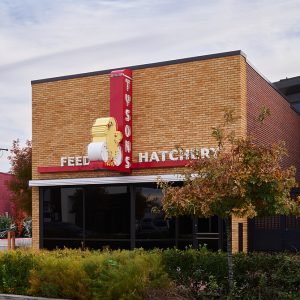 Egg Hatchery
Egg Hatchery 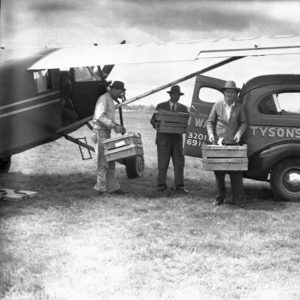 Tyson's Hatchery Air Delivery
Tyson's Hatchery Air Delivery 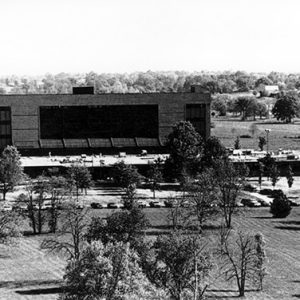 Tyson Headquarters
Tyson Headquarters 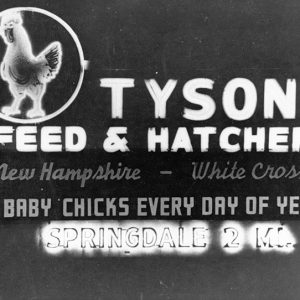 Tyson Sign
Tyson Sign 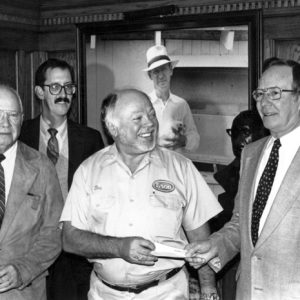 Don Tyson
Don Tyson 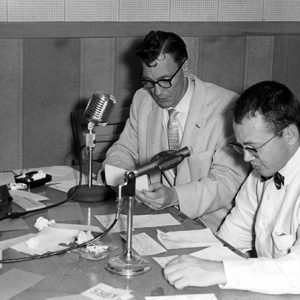 Don Tyson
Don Tyson 




Comments
No comments on this entry yet.